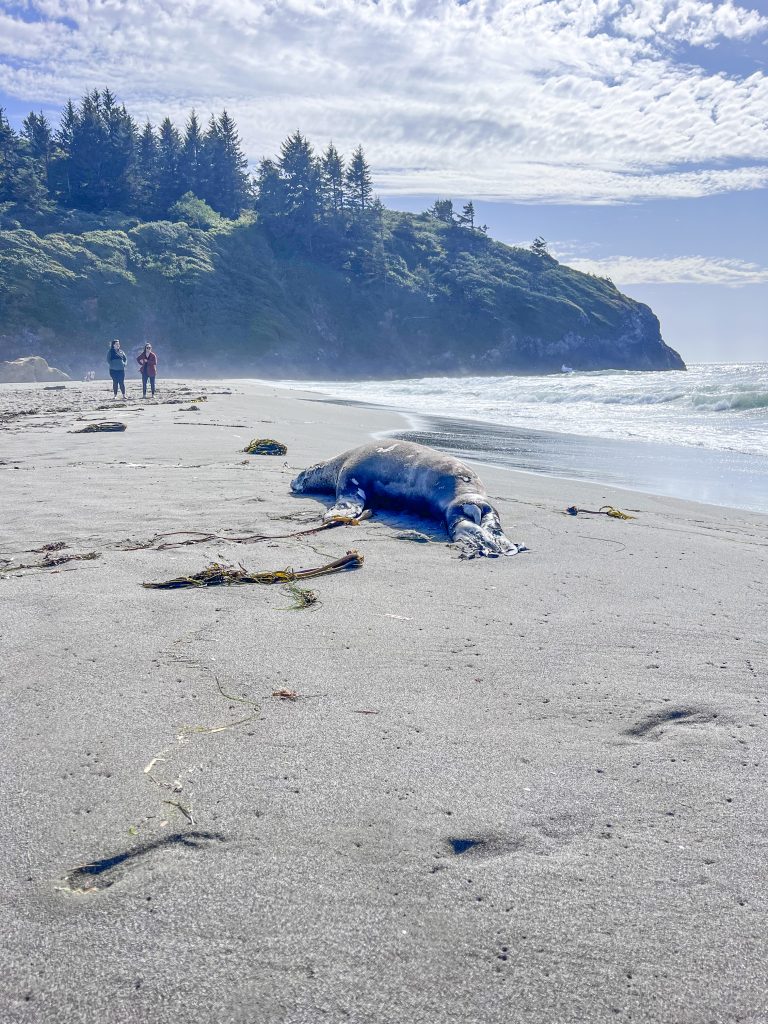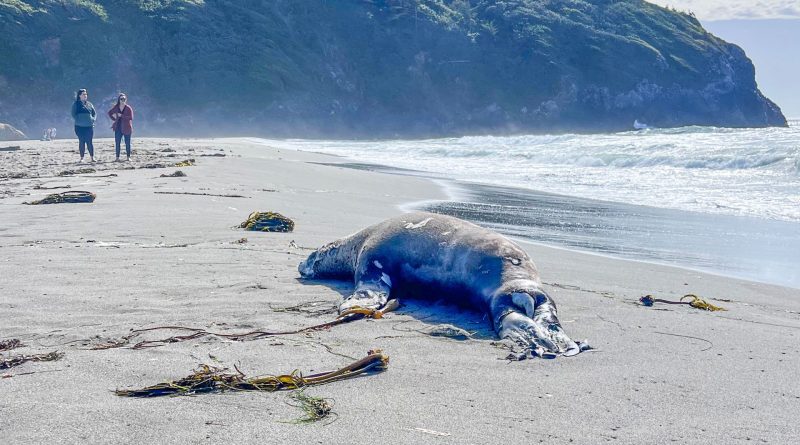Disease killing high number of seals and sea lions in Humboldt County

Humboldt County and other parts of California have seen a spike in marine mammal strandings and deaths caused by a bacterial disease called Leptospirosis.
It affects the kidneys of seals and sea lions and can lead to paralysis and death. Humans and pets can contract this disease through contact with bodily fluids from marine mammals such as urine or feces in water, soil and sand, remarked Outreach Director for the Cal Poly Humboldt Telonicher Marine Lab, Emily Curry. She also recommends not consuming shellfish or fish caught locally because they may have Leptospirosis.
Leptospirosis can cause high fever, headache, chills, muscle aches, vomiting, jaundice, red eyes, abdominal pains, diarrhea, and rashes in the first stage. If the second phase occurs untreated, a person may have kidney or liver failure or meningitis, according to the Centers for Disease Control and Prevention.
Dawn Goley is the director of Cal Poly Humboldt’s Marine Mammal Stranding Program (MMSP) and Marine Mammal Education and Research Program (MIRP). Goley, staff and students work together to monitor dead marine mammals that wash up on shore in the counties of Humboldt, Del Norte and Mendocino.
The normal number of marine mammal deaths due to Leptospirosis is around 120 in a year, explained Goley. As of Sept. of 2023, there had already been 197 strandings caused by this disease.
“There’s a huge uptick in the number of marine mammals that are stranding and the majority of those are California sea lions,” Goley said.
Goley said many sea lions contracted a neurotoxin in the summer caused by large algae blooms from rising sea temperatures in southern California. The ones that survived and migrated Northward for the winter are likely weakened making them more susceptible to Leptospirosis.
“…when they started to come up here, we started to have an increase in strandings of those animals in particular,” Goley said. “And it became apparent that they were affected by a bacterial disease called Leptospirosis.”
Community members can reach out to report a dead marine mammal on local beaches by contacting the Cal Poly Humboldt Marine Mammal Stranding Program at marinemammals@humboldt.edu or our hotline at 707-826-3650. If the marine mammal is sick or injured, please call the North Coast Marine Mammal Center hotline at 707-951-4722.
“If the reporters can share a good description of the location (latitude/longitude are especially helpful, but not necessary), as well as a photo(s) of the animal – that would be the most helpful for us to mount a quick response,” Goley said.
Some carcasses may have zip ties around their flippers which means that the animal has already been examined and reported to the stranding network.
The Cal Poly Humboldt Marine Mammal Stranding Program is available to students of any major and has no prerequisites. To get put on the email list for an application, message marinemammals@humboldt.edu.




